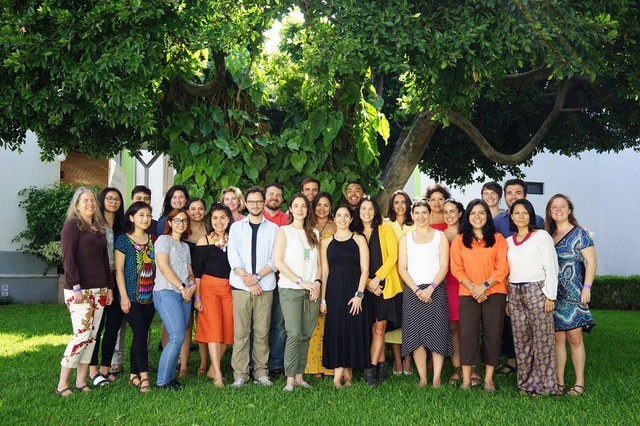By Rachel Westrate ’21
I spent my summer working at the Interamerican Association for Environmental Defense (AIDA, from its Spanish name Asociación Interamericana para la Defensa del Ambiente) in Mexico City, Mexico as an intern with the Climate Change and Human Rights programs. AIDA is a small nonprofit that works throughout Latin and South America on the issues of marine protection, fresh water, climate change, and human rights. They work with lawyers and scientists to support strategic litigation, help people advocate for their environmental rights, and promote sound environmental policies.
My work this summer had two main focuses. The first was supporting AIDA in their participation in the Observatorio Ciudadano de Calidad del Aire (OCCA), an organization comprised of several NGOs in the Mexico City area fighting to improve air quality in the Mexico City metropolitan zone. I researched and wrote memos concerning Mexico’s international obligations in protecting clean air as a human right, compared Mexico City’s new proposals to improve air quality to the recommendations from OCCA and Mexico’s National Court of Human Rights (Corte Nacional de Derechos Humanos), and monitored daily air quality in Mexico City in comparison to the World Health Organization limits (which are much lower than the Mexican national limits).

Rachel Westrate ’21 (ninth from left) and her colleagues at AIDA
My second project involved initial research on the link between migration and climate change, specifically for Central American migrants, and potential legal claims migrants might bring against those contributing to climate change. Currently, countries in the “dry corridor” of Central America, especially Honduras, are experiencing a historic drought, which is pushing people out of their local villages since they can no longer provide for their families through subsistence agriculture. Many of these people are moving to the United States seeking better opportunities—but currently, climate change is not a reason to grant asylum under the 1951 Refugee Convention, and so many migrants are being detained at the border by a country who is responsible for contributing to climate change and the drought in their home countries. While in the very early stages, the topic of international immigration and climate change law is a burgeoning area which will gain importance as more and more people are pushed out of their homes by climate-related issues, and I was excited to be at the forefront of this research with AIDA this summer.
My summer experience at AIDA was incredible, and showed me the difference a small organization can make with a group of dedicated and passionate people. For more information on AIDA and the wonderful work they do, visit https://aida-americas.org/en.
Rachel Westrate, now a second-year J.D. student at HLS, spent her 1L summer in Mexico as a 2019 Chayes International Public Service Fellow.

 Legal scholars from across the globe gathered at Harvard Law School in July for a two-day conference on law and development. The conference is the latest in a series of conferences held periodically by a loose consortium of schools–including Harvard Law School, the University of Geneva, Renmin University of China, and the University of Sydney, Australia–on themes of broad shared interest. Previous meetings focused, respectively, on property, corporate governance, and dispute resolution. This year’s conference also included participants from the National Autonomous University of Mexico, Seoul National University, the Universidad de los Andes in Colombia, and the University of the Witwatersrand in South Africa.
Legal scholars from across the globe gathered at Harvard Law School in July for a two-day conference on law and development. The conference is the latest in a series of conferences held periodically by a loose consortium of schools–including Harvard Law School, the University of Geneva, Renmin University of China, and the University of Sydney, Australia–on themes of broad shared interest. Previous meetings focused, respectively, on property, corporate governance, and dispute resolution. This year’s conference also included participants from the National Autonomous University of Mexico, Seoul National University, the Universidad de los Andes in Colombia, and the University of the Witwatersrand in South Africa. 